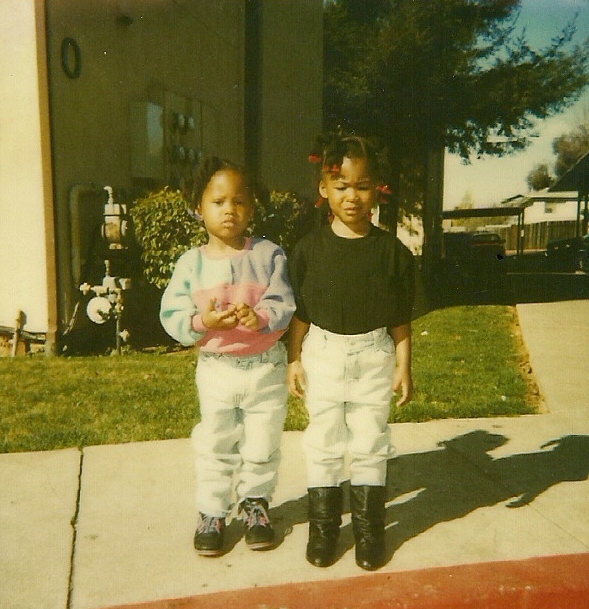“Am I Broken or Just Traumatized?”
Trauma can hurt so much it feels like you're losing your damn mind. Like you’re spiraling into an emotional tornado, armed with catastrophic thoughts x100 and a full-blown self-deprecation parade. It’s like your brain throws a pity party, forgets to invite logic, and gives anxiety the mic.
Here’s the kicker: that unbearable emotional pain? The kind that makes you feel like you won’t survive it? That’s trauma doing trauma things. It’s loud. It’s chaotic. And it lies to you. A lot.
You start to think, “Something is wrong with me.”
But what if that’s not true?
What if your nervous system is just outta whack, doing its best to keep you safe, but glitching like a 2002 desktop after too many open tabs? Maybe that’s where the work needs to start: not with fixing something broken, but with realizing you were never broken in the first place.
Because here’s what I see all the time: the more you tell yourself you’re defective, the more you start acting like it. And not because it’s true—but because that belief becomes the lens you see yourself through. That’s self-sabotage, baby. Trauma’s favorite side hustle.
Common Symptoms of Trauma (aka: You’re Not Alone, I Promise)
If any of these sound familiar, you’re in good (traumatized but healing) company:Constant overthinking and worst-case-scenario-ing
Feeling numb or emotionally flatlined
Sudden outbursts (anger, crying, etc.) with no “logical” reason
Isolation and avoiding people
Deep fear of being a burden
Sleep struggles (either not at all or way too much)
Physical symptoms: headaches, stomach issues, body aches
Self-blame, guilt, or shame that won’t quit
Avoiding joy because it feels “unsafe” or fleeting
And oh—pushing people away even when you desperately want connection? Classic. It’s protection mode. Somewhere inside, a part of you decided: “If I’m alone, I won’t get hurt.”
But plot twist: the same brain that tells you to isolate is the one that cries about being lonely. Welcome to the beautifully frustrating experience of terminal ambivalence—when two conflicting parts of you are playing emotional tug-of-war. It’s not just you. It’s a thing. Internal Family Systems (IFS) therapy even has a name for it: parts work.
You might have one part that says, “Don’t let anyone in, they’ll hurt you.”
And another that whispers, “But I need people... I need love.”
These parts aren’t enemies. They’re just trying to protect you with the tools they have.
So... Now What? Tips & Tricks to Ride the Trauma Wave (Not Drown in It)
- Get Curious, Not Critical
Next time you spiral or push someone away, pause and ask: “Where is this coming from? What is this part trying to protect me from?” You can’t heal what you’re judging. - Name the Parts
Sounds weird, but it works. “This is my Avoidant-Amanda part showing up.” “Here comes Catastrophic-Carlos.” When you name it, you separate you from the trauma response. Stop Arguing With Pain
You don’t need to like your trauma, but fighting it 24/7 just exhausts you. Sometimes, it’s about learning to surf the wave rather than conquer the ocean. A brilliant client once told me: “I thought healing was a race with a finish line. But it turns out it’s more like you handing me a surfboard and teaching me how to ride the waves.” Honestly? Facts.Challenge the “I’m Broken” Narrative
You’re not broken. Horrible things happened to you that should never happen to anyone. It makes sense that you're hurting. That you flinch, overthink, isolate, or lash out sometimes. But that’s not who you are. It’s what happened to you.Find Safe Community
Humans are wired for connection. Even if a part of you says “nah, I’m good alone,” the truth is—community helps us heal. The challenge? Finding people who get it. (Therapists can help here. So can support groups, friends who’ve done the work, or even books and podcasts that reflect your experience.)Remember: Your Trauma is Not an Excuse, But It Is an Explanation
It explains why you react the way you do. It doesn’t define you, but it does deserve compassion and attention.
Here’s the Truth: You Can Learn to Hold the Pain Without Letting It Drown You
The pain might not disappear completely. I wish I could promise you that it would. But therapy—good therapy—can help you hold that pain differently. It can help you make space for joy and grief, connection and boundaries, progress and setbacks. You don’t have to choose just one.
You can feel scared and still move forward.
You can feel angry and still be kind to yourself.
You can feel lonely and still reach out.
You are not a broken person. You are a person with a story—and maybe that story has some really rough chapters, but it’s still being written. And I’m telling you, the plot twist where you start to believe in your worth again? That’s the good stuff. That’s where the healing lives.
And if you're stuck? That’s okay too. That’s why therapy exists.
You don’t have to figure it all out alone. Healing doesn’t happen in isolation. It happens in safe relationships, with people who can hold space for your pain without trying to fix you—because, again, you were never broken.
If this hit home and you’re ready to start the work—or even just dip your toe in the healing waters—reach out. Book a free consultation. Let’s surf some waves together.







Comments
Post a Comment